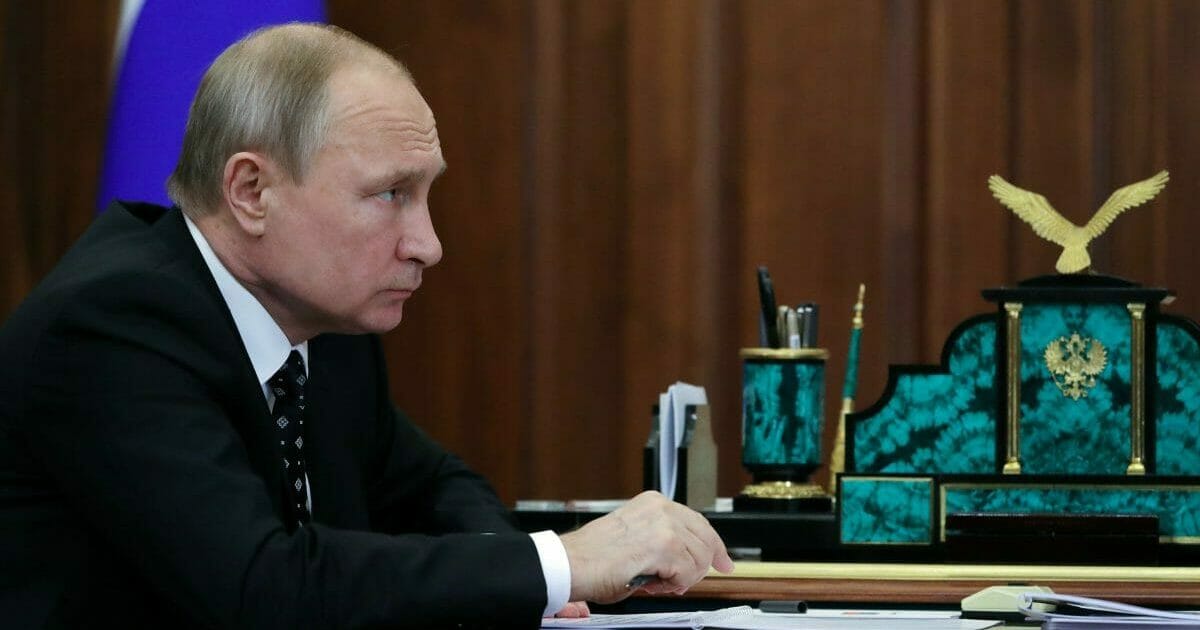
Putin Slams US Nuclear Treaty Withdrawal
Russian President Vladimir Putin said Monday that Russia will only deploy new intermediate-range missiles if the U.S. does, following the demise of a key nuclear pact, and called for urgent arms control talks to prevent a chaotic arms race.
Putin issued his statement after the 1987 Intermediate-Range Nuclear Forces Treaty came to an end Friday with the U.S. announcing its intention to test and deploy weapons previously banned by the treaty.
Washington said its withdrawal had been caused by Russian violations of the pact, a claim that Russia has denied.
Putin condemned the U.S. exit from the treaty “in a unilateral way and under a far-fetched reason,” saying that it “seriously exacerbated the situation in the world and raised fundamental risks for all.”
He said in a statement that Russia will carefully monitor Washington’s actions and respond in kind if it sees that the U.S. is developing and deploying new intermediate-range missiles.
The INF Treaty, which was signed by U.S. President Ronald Reagan and Soviet leader Mikhail Gorbachev, banned the production, testing and deployment of land-based cruise and ballistic missiles with a range of 500 to 5,500 kilometers (310 to 3,410 miles).
Such weapons were seen as particularly destabilizing because of the shorter time they take to reach targets compared to intercontinental ballistic missiles, raising the likelihood of a nuclear conflict over a false launch alert.
“If we receive reliable information that the U.S. has completed the development and launched production of the relevant systems, Russia will have to engage in full-scale development of similar missiles,” Putin said.
The U.S. has accused Russia of developing and deploying a cruise missile that violated provisions of the pact.
Russia has denied the breach, and, in its turn, accused the U.S. of violations.
Putin noted that Russia for now will rely on its existing air-launched X-101 and Kinzhal missiles and the Kalibr missiles carried by submarines and navy ships, as well as prospective weapons, including the Zircon hyper-sonic missiles, to ensure its security.
He also reaffirmed Moscow’s earlier pledge not to deploy intermediate-range weapons until the U.S. places them near Russia’s borders.
“Our actions related to the development, production and deployment of ground-based intermediate-range missiles will be exclusively reciprocal and mirrored,” he said. “We will not deploy them until the U.S.-made intermediate-range missiles are deployed” in areas where they may threaten Russia.
The Russian leader warned that the U.S. exit from the INF could pave the way for the demise of other arms control pacts and trigger an all-out arms race.
“In order to avoid chaos without any rules, restrictions and laws, it’s necessary to weigh all the dangerous consequences and start a serious dialogue without any ambiguities,” Putin said.
“Russia considers it necessary to resume full-fledged talks on strategic stability and security without any delay.”
Matthew Bodner in Moscow contributed to this report.
The Western Journal has reviewed this Associated Press story and may have altered it prior to publication to ensure that it meets our editorial standards.
Truth and Accuracy
We are committed to truth and accuracy in all of our journalism. Read our editorial standards.
Advertise with The Western Journal and reach millions of highly engaged readers, while supporting our work. Advertise Today.












